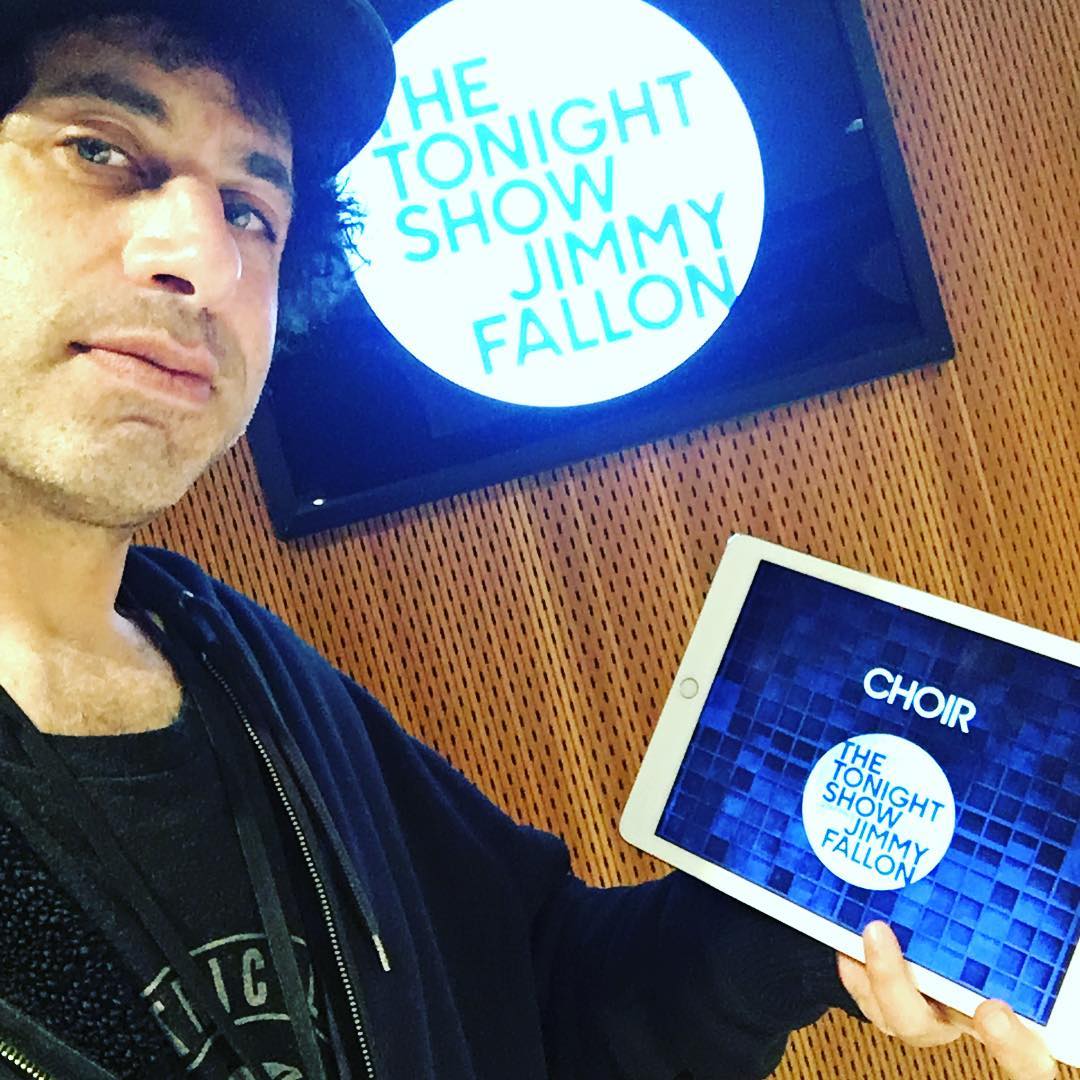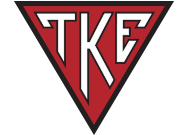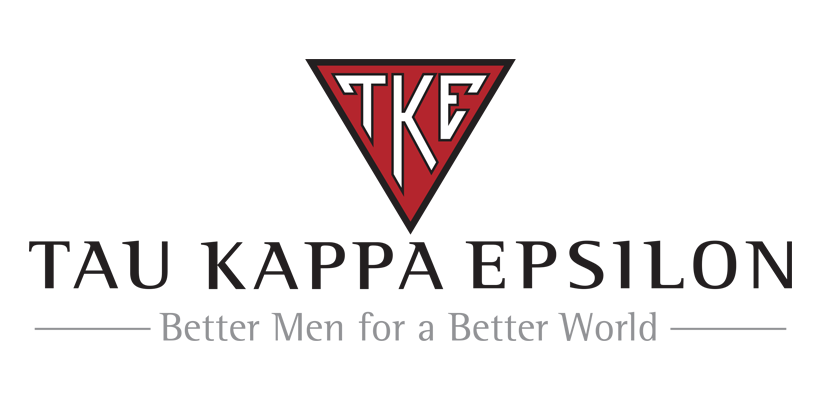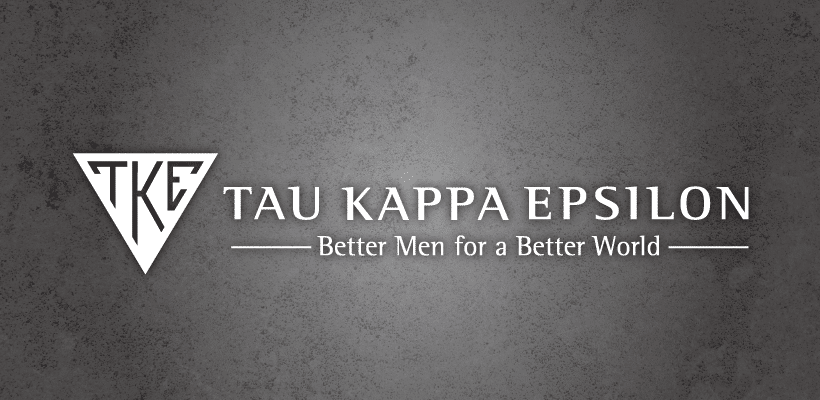Oftentimes, we find ourselves being introduced to someone new at a social gathering. These situations are always interesting, sometimes exciting, occasionally surprising—and often begin with a simple question, “So, what do you do?”
In celebration of this societal staple of socializing, we are asking TKE Nation “What do you do?” For our collegiate members, career trajectory is a large part of what draws them to groups and organizations on campus. As one of the largest fraternities in North America, TKE claims a wide range of careers and more success stories than we can count! We want to share some of those stories with you.
On a semi-regular basis, or as frequently as we come across Tekes with an interesting career path, we will publish a “So, what do you do?” article. If you, or a Teke whom you know, has made a big splash in their professional life, please submit them to us at Headquarters. TKE strives to create Better Men for a Better World and we want to hear from them. Submissions can be emailed to TKEOGC@TKE.ORG with the subject “So, what do you do?”
Steven Mandel is the producer/engineer for Questlove and The Roots, working regularly on “The Tonight Show Starring Jimmy Fallon.” In addition to his producer role, Frater Mandel also writes songs with Elvis Costello.
We asked Steven to tell us more about himself and the work he does.

TKE HQ: How did you get started in your TKE experience?
SM: I went to the University of Maryland, College Park. It’s such a funny, long story. When I was going there, which was between ‘87 and ’91, we had a chapter, but we didn’t have a house on fraternity row. We had a house, but it wasn’t on campus—we couldn’t hang our letters.
TKE HQ: I have heard that situation before; were you ever able to get a house on campus?
SM: Beta Delta did finally get a house on fraternity row. If you are not familiar with fraternity row, you should definitely look it up. It’s gorgeous—very much a status symbol for the campus. It was a semicircle with a big field in the middle.
TKE HQ: Sounds like you have quite a history there at Maryland.
SM: Absolutely. I don’t get down there much now, but I will visit sometimes. I drive by fraternity row, but there is no chapter there now, so there isn’t really a reason to stop in.
TKE HQ: That is a shame. Are you still in touch with many of your brothers from school?
SM: That’s the good news. Even though there is no chapter down there, I am still very close with a whole bunch of my brothers from my chapter. I guess we are talking about 25 years later now, essentially. But still, my best friends to this day are people I met in the Fraternity or through the Fraternity. A lot of us ended up living in New York. Literally, my best friends are from that time. So, you know, there is no chapter there for me to visit, but all my boys are still in my loop.
TKE HQ: Are you finding it easier to stay in touch with many of those Fraters with the widespread social media coverage?
SM: Certainly. Facebook and all those other things have made it easier to get back in touch with people whom I didn’t stay in touch with since college. We even have a Facebook group.
TKE HQ: So, what did you take from your TKE experience as you moved on and started your career?
SM: Well, all kinds of things. They range from very specific things to more general—ways to live, you know. You learn so much, I don’t even know where to start. I didn’t have any brothers growing up; I had one sister. So, without sounding corny, you learn about brotherhood. You learn how to make friends. You learn how to keep friends.
TKE HQ: So, what happened after you graduated?
SM: Long story short, I knocked around doing some odd jobs for a few years. Then I found a track to get on—to go to engineering school, to record music. By ‘96, I found myself as an intern at Electric Lady Studios, which is Jimi Hendrix’s old studio on East 8th Street In Manhattan. I rose up there, over a five- or six-year period, to chief engineer. I met QuestLove over there and just randomly got assigned to one of his sessions. And I have been with him ever since.

TKE HQ: It must have felt pretty good to be working at such a prestigious studio with talents like Questlove. What is your current relationship with him?
SM: So, he is my client and my boss and has been for 20 years; he has kept me employed ever since then in various ways. Then we got the job with Fallon.
TKE HQ:Have you worked with many other big names?
SM: I met Elvis Costello. He was always my idol, my favorite artist growing up. So I finally got to work with him on a regular thing. And we put out an album. He even recently released a song that I wrote the lyrics to. But this was after years—the first 10 years or so was really hard. I was on a track, but I was still broke, you know?
TKE HQ:So now that you are working on the Tonight Show, what is your life like?
SM: Just been living here, doing the Tonight Show, working on projects, and staying busy—pretty much being happy. I got real lucky as far as whom I got to work with. I caught a break and I am happy about that.
TKE HQ:What is it like to do the work you do? Can you walk us through a day in your life?
SM: Well, it’s such a hard question to answer because our days are all very similar in one way, and all very different in another. When we are not at the Tonight Show, we are either touring or doing a record somewhere. There is no set schedule to my life, which is good and bad. It’s a continual learning process.
TKE HQ: Let’s talk about your time at the Tonight Show as an example.
SM: With regard to the Tonight Show, depending on what’s happening that day, I essentially roll in around noon. I work all day trying to get the show together, we film around 5, and then we are done by 6:30. If The Roots are playing with someone, I may have to come in super early or stay later to finish up a project. Basically, my job over there, in a nutshell, is to put together all of their music cues, essentially their set list. This keeps them on track and ready to play what they need to play when they need to play it.
TKE HQ: So, if anyone needs something from The Roots, they come to you, then?
SM: Yeah, I interact with the rest of the staff, the writers, and whoever needs something from The Roots will come through me. And we put a show on every day.
TKE HQ: Sounds like you are a jack of all trades for them?
SM: Absolutely. I have other responsibilities outside of the show. I deal with all of their rehearsals that have to get done, all their live shows that have to get put together, little special projects and commercials they’re recording. I mean I am an engineer, which means I record s*%t and then make it sound good. Essentially, my job is audio engineer.
TKE HQ: It sounds like you have moved beyond that role now though?
SM: I have since moved on to more production, which means you don’t have to actually touch the dials—you just tell someone else how you want it to sound. And that’s kind of my job; that’s what I do every day when we are doing the show.
TKE HQ: So, you also work with The Roots on their albums?
SM: Yeah, we are constantly working on outside projects. We are working on the next Roots album right now—you know, going to studios, recording, coming up with ideas.
TKE HQ: That sounds like a pretty interesting career path.
SM: That just reminded me of something. I tell a lot of young people this, the ones who want to do what I do. Before I really got on the music track, I ran into an old friend from before college and he asked me what I was doing. I was delivering chicken wings at the time, so I was like—nothing. Most people at this point ask the question: Well, what do you want to do?—which is a hard question to answer. But this guy asked me, “What type of building, what type of physical structure, would you like to go to and work in every day?” He made it so real. What kind of place do I want to go to?
TKE HQ: That is a new take. Sounds like a lucky meeting as well.
SM: Right, and so I told him, ideally, I think I would like to work at a recording studio, but that’s a pipe dream. But he said it wasn’t and told me about the nine-month program for engineering. So that is what I ask people now.
But to bring it back to Teke, social skills, you know, things you learn back then—how to talk to people. Simple things. How to talk, how to listen, how to shut up. How to interact. The basics. Those are actually very important. When people come to me for interviews or jobs, they’re misspelling things, they’re talking, they aren’t listening. It doesn’t work. Those things are super important. The social skills are crucial, at least in my field. You are stuck in a studio with them, making a record for six months. You have to like them. It’s like 75 percent people skills and 25 percent actual skills.
TKE HQ: So what did you study when you were at the University of Maryland?
SM: Oh right, good question. I was a journalism major with a specialty in advertising and an English minor. And so, when I got out of school, my plan was to go into advertising and do jingles and stuff like that.
TKE HQ: How has that experience helped you in your eventual career?
SM: I think the journalism and the English and the writing helped immensely. I learned, somehow, how to read and write more properly than I had been. And speaking, all of that was very helpful to me in the long run. And yeah, I had to go through four years of college just to go back for a nine-month trade school diploma, but I still think I got a lot of education at Maryland.
TKE HQ: Well, thanks for speaking with us and sharing your story. We don’t want to keep you for too long, but before we go, where can we find out more about you?
SM: I appreciate your reaching out. I look forward to hopefully hearing from other Tekes who want to check in and say hello. I’m available to anybody who’s a brother. You can find me on Twitter @stevenmandel and on Instagram @stevemandel





